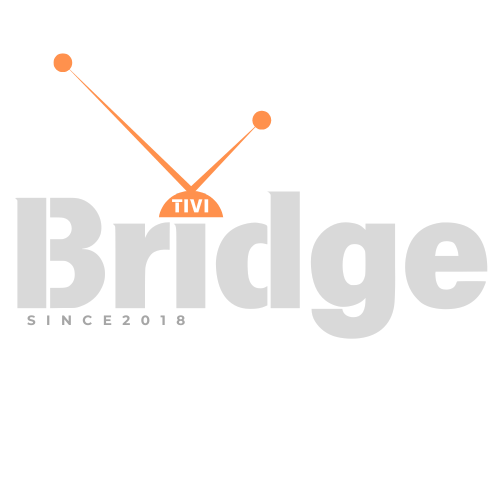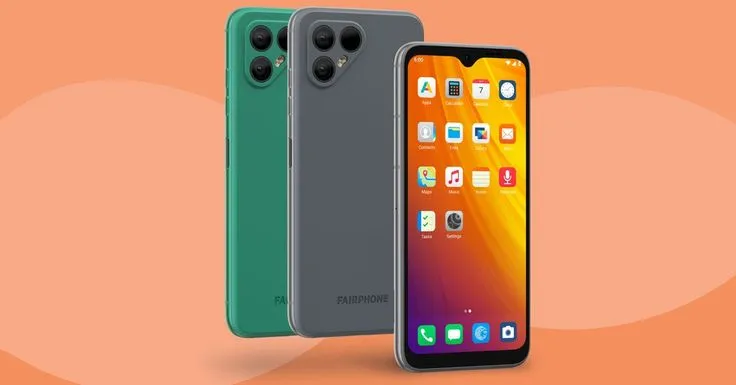Requirements for High-Quality IPTV
Requirements for High-Quality IPTV – In today’s digital entertainment landscape, achieving high-quality IPTV streaming has become the holy grail for cord-cutters and streaming enthusiasts worldwide. Whether you’re looking to enjoy crystal-clear sports broadcasts, binge your favorite shows, or explore international content, understanding what drives exceptional streaming performance is essential.
This comprehensive guide explores all the critical requirements for high-quality IPTV streaming in 2025, covering everything from internet connectivity specifications to device selection and service provider considerations. By the end, you’ll have actionable insights to transform your viewing experience from buffering frustration to seamless entertainment.
Why High-Quality IPTV Streaming Matters More Than Ever
The demand for high-quality IPTV streaming has skyrocketed as more viewers abandon traditional cable and satellite services. With premium content now delivered exclusively through internet protocols, ensuring optimal streaming conditions has become paramount for a satisfying viewing experience.
According to recent industry statistics, IPTV subscriptions worldwide exceeded 1.4 billion in early 2025, representing a 27% year-over-year increase. This explosive growth highlights how critical it is to understand the requirements for high-quality IPTV streaming across different content types and viewing scenarios.
The Evolution of Streaming Quality Expectations
Viewer expectations have evolved dramatically over the past decade:
- 2015: 720p was considered acceptable for most content
- 2020: 1080p became the minimum standard for quality-conscious viewers
- 2025: 4K streaming with HDR is increasingly expected, especially for premium content
This rapid evolution means that the infrastructure requirements for high-quality IPTV streaming have similarly advanced, requiring users to continually update their knowledge and setup.
Essential Internet Connection Requirements
At the foundation of any high-quality IPTV streaming setup is a robust and reliable internet connection. The specifications needed vary based on content quality and household usage patterns.
Minimum Bandwidth Requirements by Resolution
| Resolution | Minimum Speed | Recommended Speed | Best Experience |
|---|---|---|---|
| SD (480p) | 3 Mbps | 5 Mbps | 8 Mbps |
| HD (720p) | 5 Mbps | 10 Mbps | 15 Mbps |
| Full HD (1080p) | 10 Mbps | 15 Mbps | 25 Mbps |
| 4K UHD | 25 Mbps | 35 Mbps | 50+ Mbps |
| 8K | 50 Mbps | 80 Mbps | 100+ Mbps |
These requirements become even more demanding when streaming sport IPTV content, where frame rates and bitrates are typically higher to capture fast-moving action smoothly.
Connection Stability and Consistency
Raw speed isn’t the only factor in achieving high-quality IPTV streaming. Connection stability plays an equally important role:
- Low Latency: Ideally under 30ms for live content, especially important for online sports 2025 events
- Minimal Packet Loss: Should be under 0.5% for uninterrupted playback
- Consistent Throughput: Speed should remain stable during peak usage hours
Many users find that even with nominally fast connections, their high-quality IPTV streaming suffers during evening hours when network congestion occurs. Working with the best IPTV provider to watch all channels can help mitigate some of these issues through optimized delivery networks.
Wired vs. Wireless Considerations
For the most reliable high-quality IPTV streaming experience, connection type matters significantly:
- Ethernet (Wired): Provides the most stable connection with minimal interference and maximum throughput
- Wi-Fi 6 (802.11ax): Offers improved performance over previous wireless standards, but still subject to environmental interference
- Wi-Fi 5 (802.11ac): Adequate for most streaming needs but may struggle with multiple simultaneous 4K streams
- Older Wi-Fi Standards: Generally insufficient for consistent high-quality IPTV streaming in multi-device households
Pro Tip: If using Wi-Fi, position your router centrally and minimize interference from walls and electronic devices to improve your high-quality IPTV streaming experience.
Hardware Requirements for Optimal Viewing
Even with perfect internet connectivity, subpar hardware can bottleneck your high-quality IPTV streaming. Different devices offer varying capabilities and performance levels.
Streaming Devices and Their Capabilities
The market offers numerous devices designed for smart IPTV applications, each with different strengths:
- Dedicated IPTV Boxes: Purpose-built for streaming with optimized processors and memory configurations
- Smart TVs: Convenient all-in-one solutions with varying processing power and codec support
- Streaming Sticks: Portable and affordable options that may have processing limitations
- Gaming Consoles: Powerful hardware that handles streaming well but may not support all IPTV applications
For the most demanding high-quality IPTV streaming needs, dedicated IPTV boxes from manufacturers like Formuler, Dreamlink, or Nvidia (Shield) often provide the best performance.
Processing Power and Memory Requirements
Device specifications directly impact streaming performance:
- CPU: Quad-core processor minimum for 4K content
- RAM: 2GB minimum, with 4GB+ recommended for smoother operation
- Storage: 8GB+ for app installation and caching, though more is beneficial
Devices with insufficient specifications often struggle to maintain high-quality IPTV streaming, resulting in frame drops, audio sync issues, or application crashes during extended viewing sessions.
Display Technology Considerations
To fully appreciate high-quality IPTV streaming, your display technology must match the content quality:
- Resolution: Minimum 1080p display, with 4K recommended for premium content
- Refresh Rate: 60Hz minimum, with 120Hz providing smoother motion in sports content
- HDR Support: HDR10 or Dolby Vision compatibility for enhanced dynamic range
- Color Depth: 10-bit panel for more accurate color reproduction
The most immersive high-quality IPTV streaming experiences typically combine high-end displays with premium content from services like TiviPlanet, which specializes in delivering pristine streams.
Software and App Requirements
The software ecosystem plays a crucial role in facilitating high-quality IPTV streaming, from the applications used to the underlying system software.
IPTV Applications and Players
Various applications provide different features and performance characteristics:
- Dedicated IPTV Apps: TiviMate, IPTV Smarters, GSE Smart IPTV
- Multi-Purpose Media Players: VLC, Kodi with appropriate add-ons
- Provider-Specific Applications: Custom apps from services like IPTVBridge
The best applications for high-quality IPTV streaming offer:
- Adaptive bitrate support
- Efficient buffer management
- Comprehensive codec compatibility
- Customizable playback settings
- EPG (Electronic Program Guide) integration
Codec Support Requirements
Modern video compression technologies are essential for efficient high-quality IPTV streaming:
- H.264/AVC: The baseline standard, widely supported but less efficient
- H.265/HEVC: Up to 50% more efficient than H.264, increasingly common for 4K content
- VP9: Google’s alternative to HEVC, used on some platforms
- AV1: The newest standard offering superior compression efficiency
Audio codecs are equally important:
- AAC: The current standard for most streaming services
- Dolby Digital Plus: Provides improved audio quality with compatible systems
- Dolby Atmos: The premium standard for immersive audio
Devices and applications that support these advanced codecs deliver superior high-quality IPTV streaming experiences while potentially reducing bandwidth requirements.
Service Provider Considerations
Not all IPTV services are created equal when it comes to delivering high-quality IPTV streaming. Several factors differentiate premium providers from basic services.
Server Infrastructure and Capacity
The backend infrastructure of your provider significantly impacts streaming quality:
- Server Locations: Geographically distributed servers reduce latency
- Bandwidth Capacity: Higher capacity prevents congestion during peak viewing times
- Load Balancing: Intelligent distribution of users across servers maintains performance
- Redundancy: Backup systems prevent outages and interruptions
Leading providers like TiviBridge invest heavily in robust infrastructure to ensure consistent high-quality IPTV streaming even during high-demand events.
Stream Source Quality
The original quality of content feeds directly affects the viewing experience:
- Original Bitrate: Higher source bitrates provide more detail and clarity
- Capture Equipment: Professional-grade equipment delivers cleaner source feeds
- Processing Pipeline: Minimal compression and processing preserves quality
For those seeking the absolute best viewing experience, particularly for sport IPTV content, providers that source directly from premium feeds typically deliver superior high-quality IPTV streaming.
Subscription Tiers and Limitations
Many providers offer tiered services with different quality levels:
- Basic Tiers: Often limited to SD or 720p streams with restricted device usage
- Standard Tiers: Typically offer 1080p content with moderate device limitations
- Premium Tiers: Provide 4K content where available with generous multi-device support
Understanding these limitations is essential when selecting the best IPTV provider to watch all channels that matches your quality expectations and usage patterns.
Network Optimization Techniques
Even with excellent provider quality and sufficient hardware, network configuration plays a vital role in achieving high-quality IPTV streaming.
Quality of Service (QoS) Settings
Modern routers allow traffic prioritization through QoS settings:
- Device Prioritization: Giving streaming devices network priority
- Application Prioritization: Prioritizing video streaming traffic
- Bandwidth Allocation: Reserving minimum bandwidth for streaming devices
Properly configured QoS can dramatically improve high-quality IPTV streaming reliability, especially in households with multiple active devices.
VPN Considerations
Many users employ VPNs when accessing IPTV services, which can affect streaming quality:
- VPN Protocol Selection: WireGuard typically offers better performance than OpenVPN
- Server Location: Choosing nearby servers minimizes added latency
- Split Tunneling: Routing only specific traffic through the VPN can improve performance
- Provider Quality: Premium VPN services generally offer better speeds
When using a VPN with your IPTV m3u file playlist or application, these considerations become critical for maintaining high-quality IPTV streaming.
DNS Configuration
DNS server selection can impact streaming performance:
- ISP DNS: Often not optimized for streaming content
- Public DNS: Services like Google (8.8.8.8) or Cloudflare (1.1.1.1) may offer better performance
- Smart DNS: Specialized services can improve access to geo-restricted content
Proper DNS configuration can reduce initial connection times and improve overall high-quality IPTV streaming reliability.
Content-Specific Requirements
Different types of content have unique requirements for achieving high-quality IPTV streaming.
Sports Broadcasting Requirements
Sport IPTV content is particularly demanding due to:
- Higher Frame Rates: 50/60fps is ideal for smooth motion
- Lower Compression Tolerance: Compression artifacts are more noticeable in fast action
- Ultra-Low Latency: Critical for live events to avoid spoilers
- Consistent Bandwidth: Fluctuations are more noticeable during crucial moments
For the best experience watching online sports 2025 events, these factors become even more critical as broadcast standards continue to advance.
Movie and Series Streaming
Cinematic content presents different challenges:
- HDR Support: Critical for preserving director’s intent in lighting and color
- Audio Quality: Surround sound formats enhance the viewing experience
- Stable Bitrate: Prevents quality fluctuations during crucial scenes
The immersive experience of film content relies heavily on consistent high-quality IPTV streaming without interruptions or quality drops.
International and Specialized Content
For viewers of international or niche content:
- CDN Coverage: Content delivery networks should have good coverage in relevant regions
- Specialized Codec Support: Some international broadcasts use region-specific standards
- Subtitle Integration: Smooth rendering of subtitles without affecting video performance
Providers like TiviBridge.com have developed expertise in delivering high-quality IPTV streaming for international content to global audiences.
Troubleshooting Common Quality Issues
Even with optimal setup, issues can occasionally affect high-quality IPTV streaming. Understanding common problems and solutions helps maintain peak performance.
Buffering and Freezing
When streams pause or buffer frequently:
- Check Current Bandwidth: Use speed testing tools during problematic times
- Monitor Network Usage: Identify competing bandwidth-heavy applications
- Adjust Stream Quality: Temporarily lower quality settings during network congestion
- Update Firmware/Software: Ensure all devices have the latest updates
- Check Provider Status: Verify if others are experiencing similar issues
Most buffering issues in high-quality IPTV streaming stem from either local network congestion or provider capacity limitations during peak viewing times.
Audio-Video Sync Problems
When audio and video fall out of sync:
- Player Settings: Some applications offer A/V sync adjustment controls
- Device Performance: Lower-powered devices may struggle with processing
- Stream Switching: Changing channels and then returning can sometimes reset synchronization
- Application Restart: Closing and reopening the application often resolves temporary issues
These problems typically affect high-quality IPTV streaming of live content more than video-on-demand material.
Picture Quality Degradation
When image quality doesn’t meet expectations:
- Verify Source Quality: Confirm the channel supports your expected resolution
- Check Output Settings: Ensure your device is configured for maximum quality
- Bandwidth Testing: Verify sustained throughput matches content requirements
- Peak Time Issues: Note if problems occur primarily during high-usage hours
For reseller IPTV businesses, addressing these issues proactively with customers helps maintain satisfaction and reduces support requests.
Future-Proofing Your IPTV Setup
As technology evolves, staying ahead ensures continued high-quality IPTV streaming for years to come.
Emerging Technologies and Standards
Several developments will impact future streaming requirements:
- 8K Content: Beginning to emerge for premium events and specialized content
- Next-Gen Codecs: AV1 and VVC (H.266) promise improved efficiency
- Higher Frame Rates: 120fps content becoming more common, especially in sports
- Advanced Audio: Object-based audio formats providing more immersive experiences
Early adoption of compatible hardware allows you to enjoy these advancements in high-quality IPTV streaming as they become available.
Scalable Setup Recommendations
To build a system that grows with your needs:
- Invest in Processing Headroom: Choose devices with specs beyond current requirements
- Prioritize Connectivity: Ensure infrastructure supports future bandwidth needs
- Select Adaptable Software: Use applications with regular updates and new feature support
- Choose Forward-Looking Providers: Partner with services that consistently adopt new technologies
These principles help ensure your high-quality IPTV streaming setup remains viable as standards evolve.
Looking for Premium Channels, Sports, and 4K Streaming?
Don’t miss out on these top-rated IPTV services – all at unbeatable prices!
🔥 TiviBridge – Ideal for sports lovers & international content
🎬 Iptvbridge – Perfect for live TV, movies & entertainment
💰 TiviPlanet – Best value for budget-conscious streamers
🚀 Start Your IPTV Business Today!
Get instant access to a powerful Reseller IPTV Panel with competitive pricing, advanced features, and 24/7 support. Join TiviBridge and grow your own IPTV empire with ease!
👉 Start your FREE trial now and elevate your viewing experience with seamless, high-quality streaming!
FAQ: High-Quality IPTV Streaming
What internet speed do I really need for 4K IPTV streaming?
For reliable high-quality IPTV streaming in 4K resolution, you need a consistent 25 Mbps minimum dedicated to your streaming device. For households with multiple devices or concurrent streams, 50+ Mbps is recommended. Remember that advertised ISP speeds often differ from actual performance, especially during peak hours.
Can my Smart TV handle high-quality IPTV without a separate box?
Most modern smart IPTV televisions can handle basic streaming needs, but dedicated external devices typically offer better performance for high-quality IPTV streaming. Smart TVs often use lower-cost processors that may struggle with advanced features like adaptive bitrate management or specialized codec processing.
Why does my stream quality vary throughout the day?
Fluctuations in high-quality IPTV streaming often relate to network congestion, either from your ISP or the provider’s servers during peak viewing times. This is especially common with less robust providers during popular online sports 2025 events when many viewers connect simultaneously.
Are IPTV m3u files less reliable than dedicated apps?
Using an IPTV m3u file isn’t inherently less reliable, but the player application you use to open these files significantly impacts performance. Premium players with advanced features generally provide better high-quality IPTV streaming experiences than basic applications.
How can I test if my setup meets requirements for high-quality streaming?
Beyond standard speed tests, specialized IPTV diagnostic tools can assess your setup’s capability for high-quality IPTV streaming. These tools check for consistent bandwidth, packet loss, buffering performance, and codec compatibility—all critical factors for optimal viewing.
Conclusion: Achieving the Ultimate Viewing Experience
Attaining high-quality IPTV streaming requires the right combination of internet connectivity, hardware capabilities, software optimization, and service provider quality. By addressing each component systematically, you can transform your viewing experience from frustrating to phenomenal.
Remember that requirements continue to evolve as content standards advance, making ongoing optimization an essential part of maintaining peak performance. Whether you’re watching the latest online sports 2025 events or binging international dramas, these principles remain consistent.
For those seeking the absolute best experience without the technical hassle, premium services like IPTVBridge and TiviBridge offer optimized solutions that handle many of these considerations automatically.
We’d love to hear about your experiences achieving high-quality IPTV streaming! Share your setup, challenges, and solutions in the comments below. And if you found this guide helpful, please share it with fellow streaming enthusiasts who might benefit from these insights.
What aspect of high-quality streaming has made the biggest difference in your viewing experience? Let us know below!











